To stay in Germany longer than 90 days in a 180 period, you will need a residence permit. Qualifying for a residence permit will depend, among other things, on the type of visa you applied for. Your long-stay visa allows you to travel to Germany. Within two weeks after arrival in Germany, you need to register at your local town office and Immigration authority. See Registering at the local town office. You will receive a Meldebestätigung (Certificate of registration at the main residence)
After registering at the relevant immigration authority (Ausländerbehorde), you will be issued a Residence permit.
Fiktionsbescheinigung
A single entry for example, will mean you are not permitted to travel back to Germany unless otherwise indicated.
A fictional certificate cannot be issued to holders of a Schengen visa for short-term residence (Category C).
- If you entered Germany on a National Visa (Category D) Abs. 4 will apply to you.
There are currently 3 variations of a Fiktionsbescheinigung
The rules applicable to you will be marked clearly on your Fiktionsbescheinigung
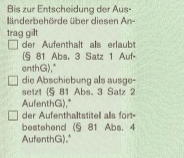
Variation 1: § 81 Abs. 4 AufenthG
If a foreigner applies for an extension of his or her residence title or for a different residence title before his or her current residence title expires, the current residence title is deemed to remain in force from the time it expires until the time of the decision by the foreigner’s authority. This does not apply to visas issued in accordance with section 6 (1). If the application to issue or extend a residence title was filed too late, the foreigner’s authority may order that the previous residence title remains valid in order to avoid undue hardship. – Gesetze im Internet
From Service Berlin
If a currently valid residence permit (temporary residence permit or national visa for long-term durations – Category D ) is available, a fictional certificate according to § 81 Section 4 of the Residence Act will be issued. In this case, the residence permit and all supplementary regulations (also regarding the stipulations concerning gainful employment) remain in force until a decision has been made in relation to the application. Journeys abroad and re-entry into the area of the Republic are possible with a valid fictional certificate in accordance with § 81 Section 4 of the Residence Act.
- This means - With a valid passport and a Fiktionsbescheinigung, you can travel from and to Germany. It must of course be within the validity dates of the Fiktionsbescheinigung
Variation 2: § 81 Abs. 3 Satz 1 AufenthG
The applicant has no residence permit and applied late for a residence permit.
If a foreigner who is legally resident in the federal territory and does not possess a residence title applies for a residence title, his or her residence is deemed to be permitted up to the time of the decision by the foreigners authority. If the application is filed too late, deportation is deemed to be suspended from the time of application up to the time of the decision by the foreigners authority. – Gesetze im Internet
From Service Berlin
If the male or female applicant is lawfully resident without a visa in the Federal Republic, because he or she is entitled to be by virtue of his/her nationality, the fictional certificate will be issued in accordance with § 81 Section 3 of the Residence Act.
This permits residence in the area of the Federal Republic until a decision has been made regarding the application. This fictional certification, however, does not permit re-entry into the territory of the Federal Republic. It also does not permit the commencement of gainful employment.
- This means you are not allowed to travel from Germany but not back without a valid visa
Variation 3: § 81 Abs. 3 Satz 2AufenthG
The applicant has no residence permit and applied late for a residence permit.
If a foreigner who is legally resident in the federal territory and does not possess a residence title applies for a residence title, his or her residence is deemed to be permitted up to the time of the decision by the foreigners authority. If the application is filed too late, deportation is deemed to be suspended from the time of application up to the time of the decision by the foreigners authority. – Gesetze im Internet
-
This means you are not allowed to travel from Germany but not back without a valid visa
Types of Residence permits
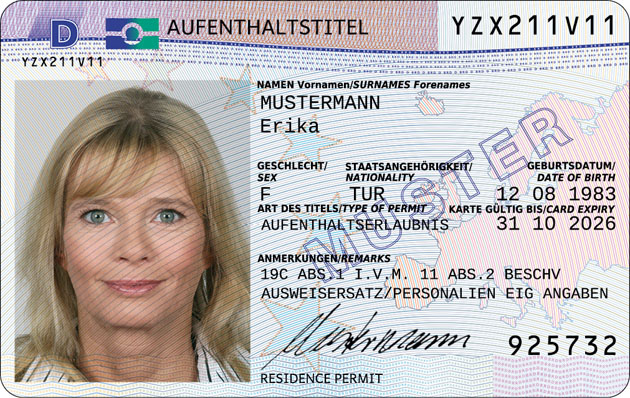
Temporary Residence
A Visa allows you to enter Germany, but your stay is limited to no more than 90 days in a 180-day cycle.If you want to
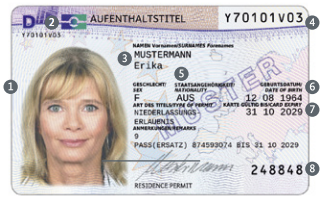
Permanent Residence
Permanent residence in Germany is called a Niederlassungserlaubnis and may be granted in the form of a Settlement permit or Permanent EC residence permit. Very important!!
Legal basis
Section 81 Aufenhaltsgesetz – AufenthG (Act on Residence, Economic Activity and Integration of Foreigners in the Federal Territory)
Related content

Legalising Documents
Depending on the situation, you might need to have documentation authenticated, certified, or make certified copies thereof. Document authentication South Africa and Germany are both

Police Clearance Certificate
South Africa In South Africa you can apply for a Police clearance certificate at your local police station.The process can take up to six months.

Registering at the Local Town Office
If you plan to stay in Germany for longer than 3 months, you will need to register at your local Bürgeramt (Town office).This is called

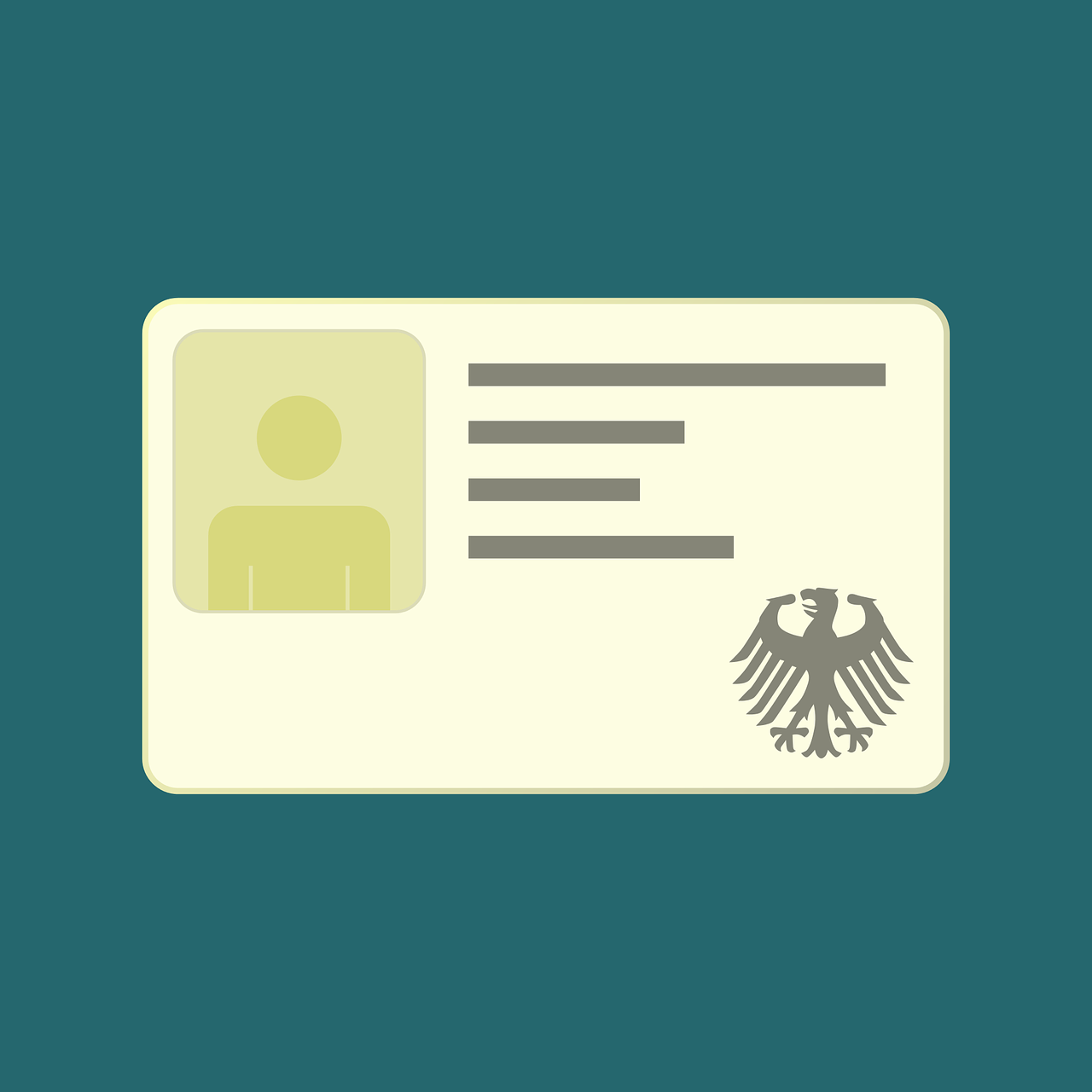
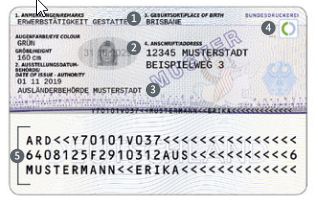



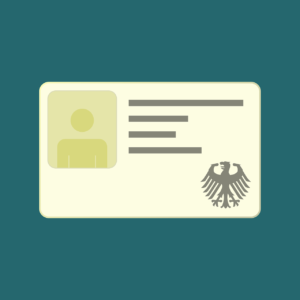
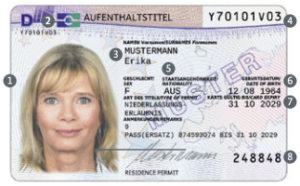


You must be logged in to post a comment.